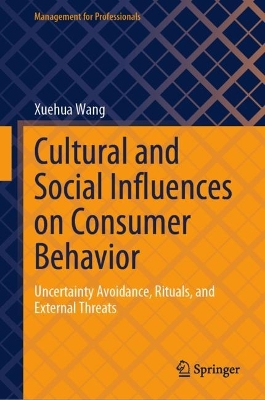Management for Professionals
1 total work
This book explores how cultural and social influences affect consumer decision making with a focus on uncertainty avoidance, rituals, and external threats. Indeed, uncertainty avoidance can exert significant influence on consumer behavior. For example, consumers in a culture with high uncertainty avoidance may show less positive attitudes towards new products than those in a culture with low uncertainty avoidance. Prior cultural research has mainly focused on how individualism/collectivism or power distance belief influences consumer attitudes and behaviors at an individual level, while seldom does research investigate the effect of uncertainty avoidance on consumption. This book examines how uncertainty avoidance affects superstitious consumption as well as its underlying mechanism and boundary condition. Rituals, as a component of culture, can affect consumer behaviors. However, few studies have shedded light on how repeating rituals can affect consumers’ willingness to use the products involved in the ritual. Consumer behavior is complex. Consumers are surrounded with various external threats such as health, economic, and informational threats, while prior research has primarily focused on health threats. Beyond this, inter-client conflicts, as a special type of social threat, can also affect consumption experience. In all, this book aims to examine how uncertainty avoidance, rituals and external threats influence consumer attitudes and behaviors. In this book, new research models would be developed. This book enriches our understanding on how cultural and social influences affect consumer decision making and provides insights for both researchers and practitioners in marketing.
